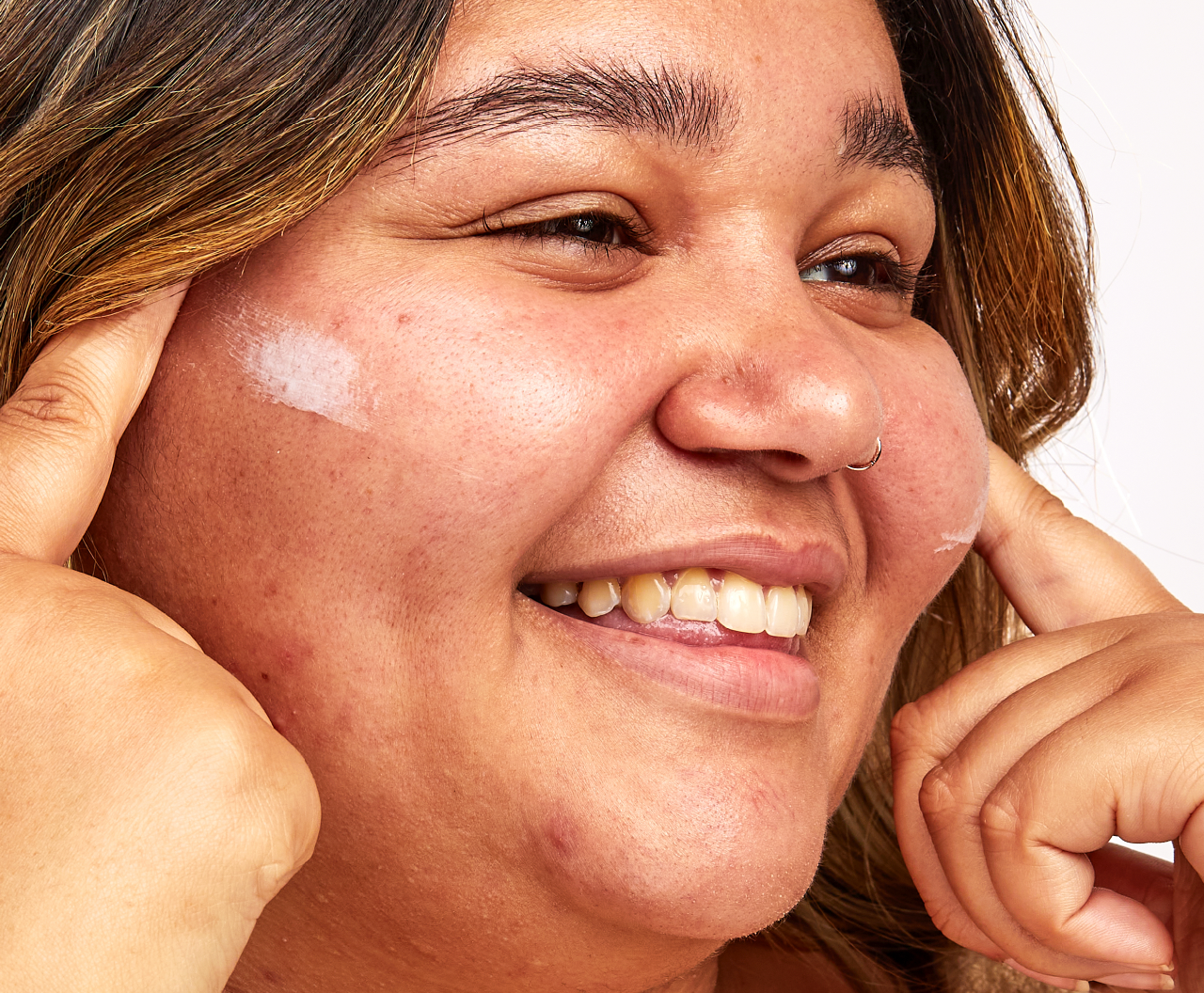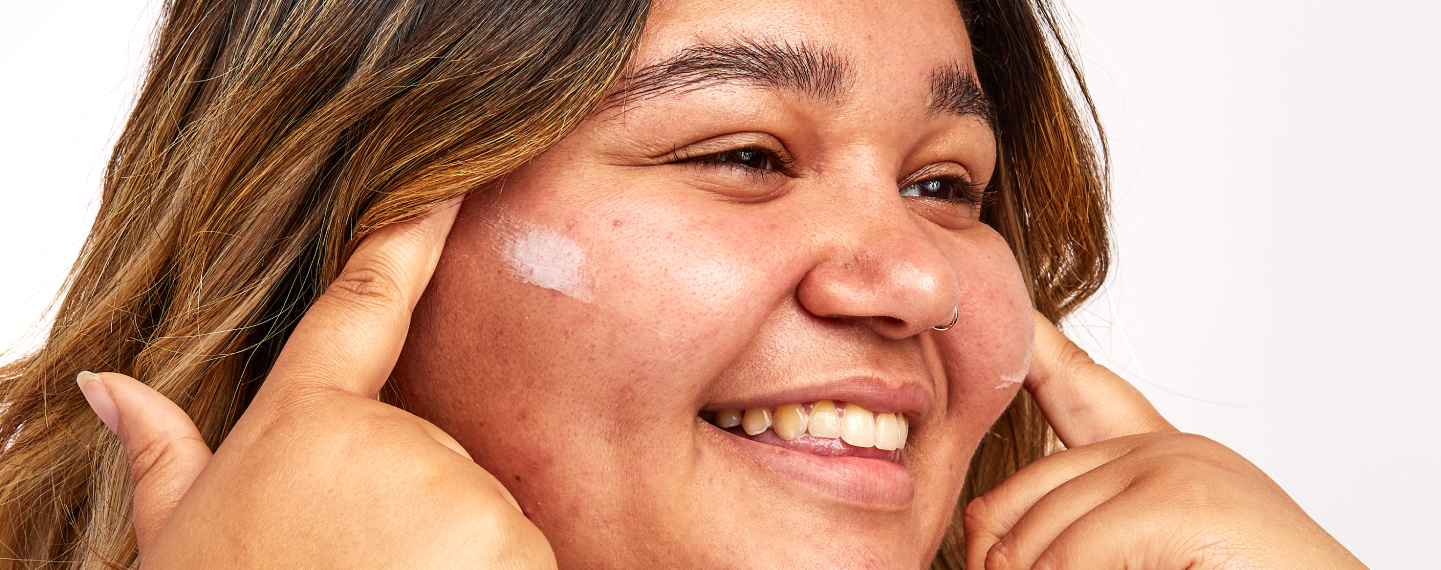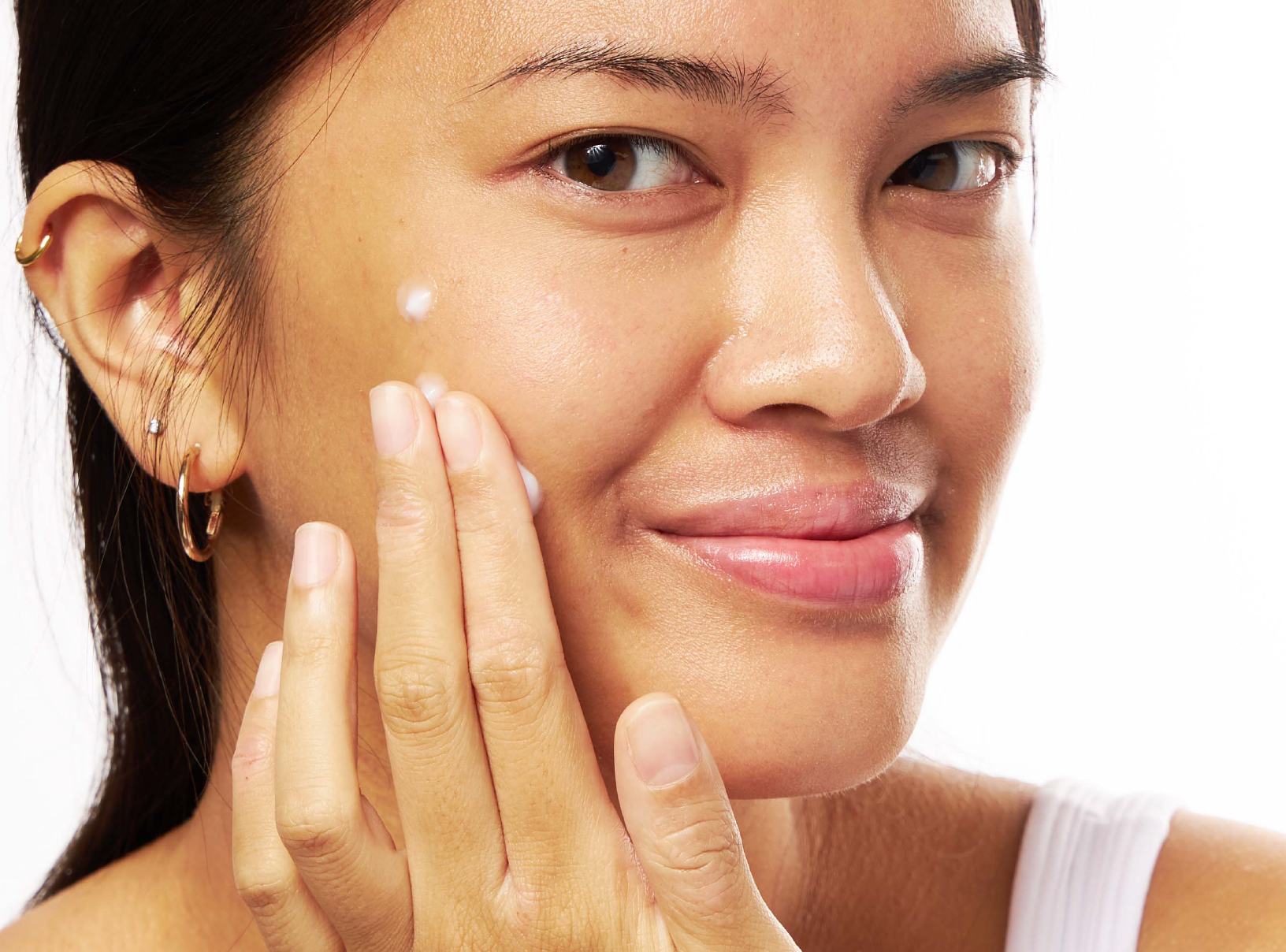Education
Best moisturizer for acne-prone skin


SHARE
Education
Best moisturizer for acne-prone skin
Medically reviewed by Kristin Hall, FNP
Written by Apostrophe Team
Last updated 11/3/2024
You want to do what’s best for your skin, but it’s not always easy. This is especially true if you struggle with acne.
Knowing what to use can be maddening when you’re surrounded by dozens of options, and when someone suggests you need to add a moisturizer to the mix, it only stands to make things even more complicated.
The truth is: the right moisturizer can actually help you in your journey to healthy skin.
Read on for help in identifying the best moisturizer for acne-prone skin.
Why Acne-Prone Skin Needs Moisture, Too
Adding moisture to oily, acne-prone skin can feel like a mistake — but it’s not. In fact, it can actually help you fight breakouts.
The human body is pretty incredible, and when your skin is dry, it tries to solve this by making more oil. What this means is not using a moisturizer can actually increase oil production, which can worsen acne.
Also, many acne treatments can dry the skin, which may lead to discontinued use. For this reason, dermatology practitioners will often recommend people using salicylic acid, benzoyl peroxide or retinoids do so in conjunction with an acne-safe moisturizer to hydrate their skin and help stick to their anti-acne skin care routine.
In fact, according to one study, people on a retinoid treatment were more likely to stick with it if they used a moisturizer from the very beginning, rather than waiting until the retinoid made their skin uncomfortably dry.
Ingredients: What To Look for in a Moisturizer for Acne-Prone Skin
In general, moisturizer ingredients have three properties: occlusive, humectant, and/or emollient.
Occlusive ingredients block moisture loss with a protective barrier and include lanolin, mineral oil, squalene, and silicone derivatives, to name a few.
Humectant ingredients attract water from the dermis to the epidermis and include things like glycerin, sodium lactate, hyaluronic acid, sorbitol, and alpha hydroxy acids, for example.
Emollient ingredients smooth skin texture by providing oil, and includes propylene glycol, stearate, caster oil, and others.
Moisturizers generally include ingredients from all of these categories.
But moisturizers for acne sometimes choose items among these lists that are also anti-inflammatory and non-comedogenic.
For example, moisturizers marked “oil-free” are generally free of vegetable and mineral oil, and will instead use dimethicone and cyclomethicone, both of which are silicone derivatives.
Dimethicone is non-comedogenic and hypoallergenic. This ingredient has both occlusive and emollient properties, and it is safe for acne-prone skin.
Likewise, glycerin is an effective humectant, but can leave your skin feeling sticky, whereas hyaluronic acid can reduce this stickiness, making them ingredients often seen together in moisturizers for acne.
Aloe vera is also often found in moisturizers made for acne-prone skin, but may not have moisturizing benefits in concentrations under 10 percent.
Still, it has anti-inflammatory properties, so it isn’t a bad inclusion at any concentration and may be especially useful in products for sensitive skin or people with inflammatory acne.
Ingredients and Products to Stay Away From
Some ingredients are known to clog pores and may be poor choices for acne prone skin. These include lanolin and mineral oil as just a couple examples.
Better (and easier) than memorizing a long list of ingredient no-nos, is simply looking for moisturizers marketed as oil-free and non-comedogenic, or those that explicitly state they “won’t clog pores.”
Understanding all of the active ingredients on an ingredient list is an overwhelming task, so the main thing to remember is you want products that won’t lead to clogged pores. And if you struggle with oily skin, a lightweight formula may help, too.
Parting Words on Moisturizers for Acne-Prone Skin
If you struggle with oily and acne-prone skin, adding a moisturizer to your skin care routine may seem like a scary step to take — the last thing you want to do is make your complexion worse.
But dry skin caused by acne medications or inflammation can actually make your acne worse.
And if you’re using a medication that makes your skin tight and uncomfortable, you may be less inclined to keep using it.
Appropriate moisturizers for people with acne can come with a variety of ingredients. Rather than memorizing them all or studying their purposes in a formula, simply looking out for products that are oil-free and non-comedogenic will help ensure you’re buying those made for acne-prone skin.
References
https://www.aad.org/public/diseases/acne/skin-care/moisturizer
https://onlinelibrary.wiley.com/doi/abs/10.1111/1346-8138.12520
https://www.researchgate.net/publication/7498985_The_clinical_benefit_of_moisturizers
American Academy of Dermatology Association. (n.d.) Moisturizer: Why you may need it if you have acne. Retrieved from https://www.aad.org/public/diseases/acne/skin-care/moisturizer
Chularojanamontri, L., et.al. (2014, May) Moisturizers for acne: What are their constituents? Journal of Clinical and Aesthetic Dermatology. 7(5): 36-44. Retrieved from https://www.ncbi.nlm.nih.gov/pmc/articles/PMC4025519/
Hayashi, N. (2014, June) Study of the usefulness of moistuzers on adherence of acne patients treated with adapalene. The Journal of Dermatology. 41(7): 592-597. Retrieved from https://onlinelibrary.wiley.com/doi/abs/10.1111/1346-8138.12520
Like what you just read? Sign up for our email list to get the scoop on skincare science delivered straight to your inbox.

Deep Dives
A dermatologist shares his thoughts on the recent studies about benzoyl peroxide and benzene.
Read More
Education
What is milia?
What is milia? Today, we’re jumping into one type of bump that you may have heard about most commonly in infants — milia.
Read More
Education
Best moisturizer for acne-prone skin
If you have combination acne-prone skin, figuring out which moisturizer is best for your skin might be tough. In this guide, we break down the best moisturizer for combination, acne-prone skin.
Read More
